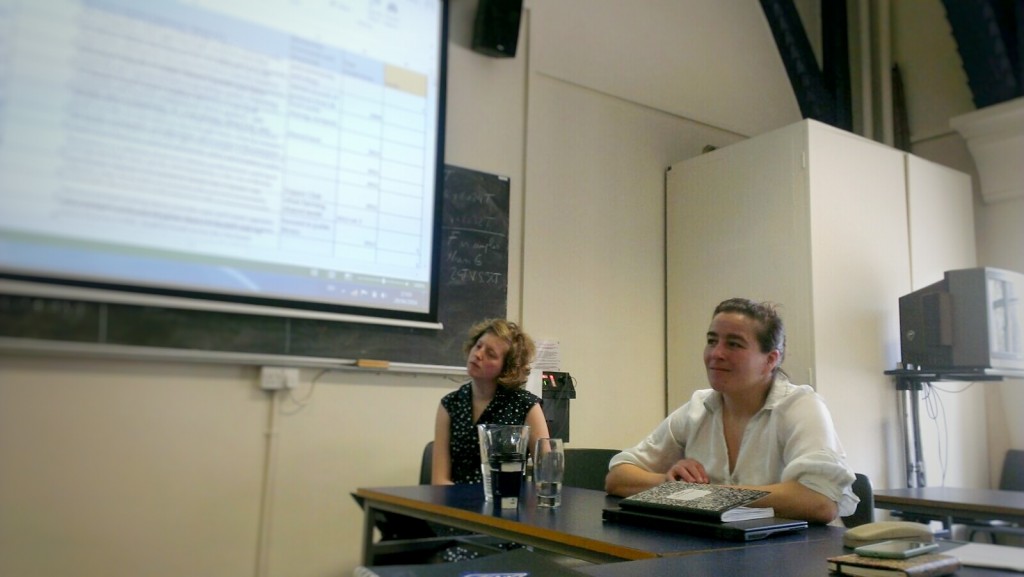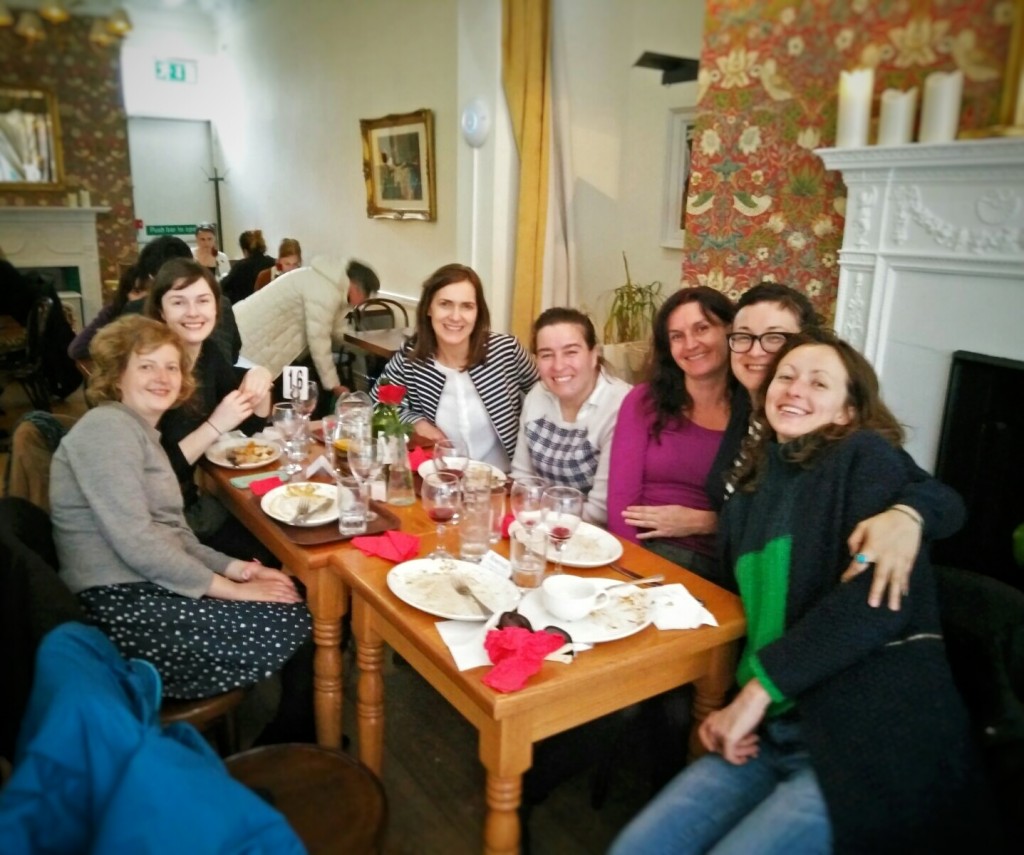SHARECITY SHARING LAB 1 – What’s in a database?
Published by SHARECITY on the 3rd May 2016.

SHARECITY SHARING LAB 1 – What’s in a database?
The SHARECITY team were delighted to welcome Dr. Vanesa Castán Broto to Trinity College Dublin last Friday, 29th April 2016, for our inaugural Sharing Lab. Vanesa gave us a fascinating master class on the challenges and benefits of databases in critical social science research. Vanesa, who is based at The Bartlett Development Planning Unit, of University College London, has a wealth of experience in this field and has developed databases for her research on climate change experiments in cities, just sustainabilities, and future proofing cities.
While Vanesa’s research has focused predominantly on climate change and energy systems, her interest in how technology and environmental knowledge mediate the relationship between nature and society provided ample common ground with the SHARECITY project, particularly around processes of socio-technological innovation and transformation within the city. Vanesa’s insights were all the more pertinent as she brings a rare interdisciplinary perspective to the table, a background in engineering and environmental sociology, which enriches discussions around environmental and social justice issues within urban environments.
Vanesa began the Lab by getting us to think about the rather fundamental question ‘why use a database?’. Within the SHARECITY project we are doing this for a few reasons, not least because no-one has ever mapped the ICT-enabled food sharing (ifood sharing for short) landscape across multiple cities, countries and continents in any sort of coherent or consistent way before. More pragmatically, the database will allow us to organise and file the mass of publicly available data on ifood sharing in a rigorous way which can be interrogated systematically to identify and visualise patterns within our data. This process will allow us to test our initial typologies of food sharing detailed in SHARECITY’s first working paper, which categorises ifood sharing into stuff (from seeds, to unprocessed and processed foodstuffs including utensils, food waste or compost), skills (including the sharing of knowledge and experiences around food from growing to eating and food waste disposal) and spaces (from shared growing spaces to shared food preparation or shared eating spaces) and by mode of sharing from informal practices through gifting and bartering to monetary exchange. The SHARECITY100 Database will also function as the source from which we will select our seven case study cities of contrasting contexts for in-depth, ethnographic and netnographic investigation in 2017.
Drawing on her vast experience, Vanesa emphasized the importance of a clear and consistent process when building databases, particularly when key concepts are loosely defined and open to multiple interpretations or contested, as was the case in her research on climate change experiments. These issues certainly resonate with SHARECITY and the amorphous concepts of sharing and sharing economies so we’re busy constructing clear protocols for searching and classifying data on ifood sharing activities which will allow us to mine for information in a way which balances our desire to collect as much information as possible with our tight time schedules for completion of this foundational task. At the same time we’re attempting to develop systems for data collection that provide structure, but which do not close down potentially interesting avenues for further detective work in the essentially unknown landscape of ifood sharing.

The SHARECITY team and Dr. Vanesa Castán Broto
If you have information about ifood sharing and would like to be part of our crowdsourcing initiative to help co-create the SHARECITY100 database we’d love to hear from you. Click here to be directed to our crowdsourcing survey.
Anna Davies
© 2015 - 2025 ShareCity | Web Design Agency Webbiz.ie







